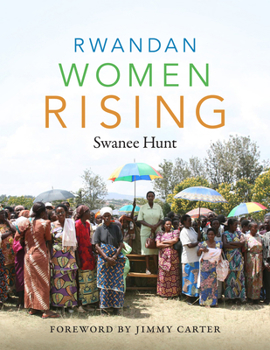Rwandan Women Rising
In the spring of 1994, the tiny African nation of Rwanda was ripped apart by a genocide that left nearly a million dead. Neighbors attacked neighbors. Family members turned against their own. After the violence subsided, Rwanda's women--drawn by the necessity of protecting their families--carved out unlikely new roles for themselves as visionary pioneers creating stability and reconciliation in genocide's wake. Today, 64 percent of the seats in Rwanda's...
Format:Hardcover
Language:English
ISBN:0822362570
ISBN13:9780822362579
Release Date:June 2017
Publisher:Duke University Press
Length:448 Pages
Weight:2.35 lbs.
Dimensions:1.2" x 6.8" x 8.6"
Customer Reviews
0 rating





